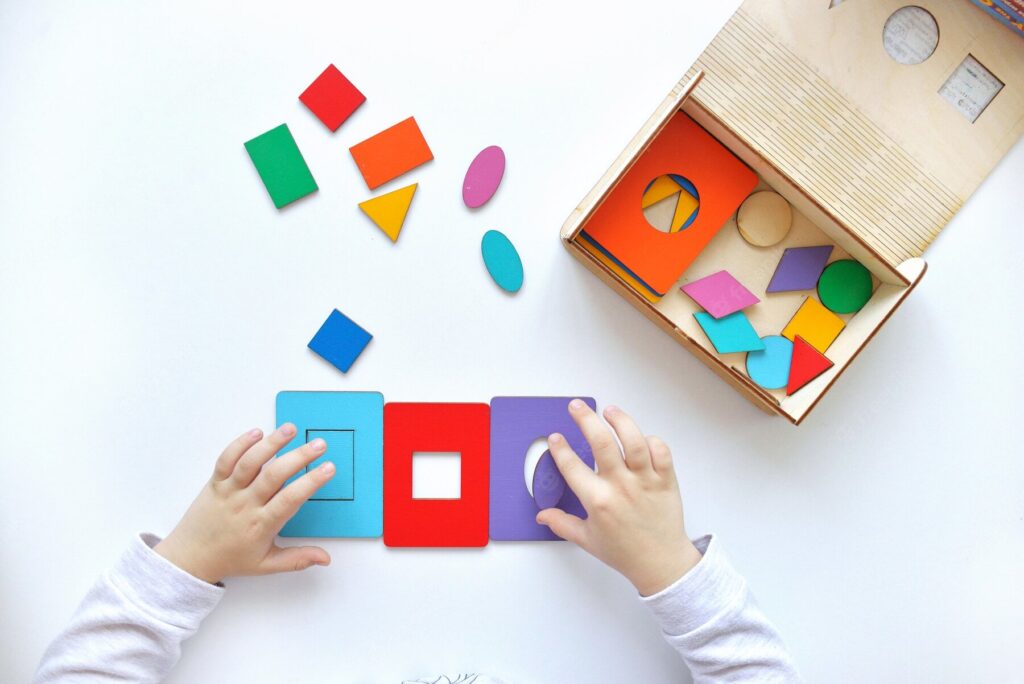
The Montessori method of education, developed by Dr. Maria Montessori, has been transforming the way children learn for over a century. At the heart of this innovative approach are Montessori exercises, which play a pivotal role in nurturing a child’s independence, self-confidence, and love for learning. In this blog, we’ll delve into the fascinating world of Montessori exercises, exploring their principles, benefits, and some examples to inspire you on your journey toward fostering a more independent and self-sufficient child.
Understanding Montessori Exercises
Montessori exercises are carefully designed activities and materials that cater to a child’s natural curiosity, enabling them to explore and learn at their own pace. These exercises are grounded in the philosophy that children are inherently motivated to learn and develop when given the freedom to choose their activities within a prepared environment. Here are some key principles that guide Montessori exercises:
- Child-Centered Learning: Montessori exercises revolve around the child’s interests and needs. They allow children to choose activities that capture their attention, ensuring that learning is engaging and enjoyable.
- Independence: Montessori exercises are designed to be self-directed, allowing children to work independently. This fosters a sense of responsibility and self-confidence as they complete tasks on their own.
- Order and Organization: The Montessori environment is meticulously organized, with materials placed on low shelves within easy reach of children. This promotes orderliness and teaches children to tidy up after themselves.
- Concrete Learning: Montessori exercises often involve tangible, hands-on materials that help children grasp abstract concepts through concrete experiences. This approach enhances understanding and retention.
- Freedom Within Limits: While children have the freedom to choose their activities, they do so within certain limits set by the prepared environment and the teacher’s guidance. This balance ensures safety and structure.
Benefits of Montessori Exercises
Montessori exercises offer a multitude of benefits for children’s holistic development:
- Academic Excellence: Montessori exercises lay a strong foundation for academic skills such as literacy, numeracy, and science. Children develop a deep understanding of concepts through hands-on exploration.
- Critical Thinking: By allowing children to problem-solve independently, Montessori exercises nurture critical thinking and problem-solving skills from an early age.
- Self-Discipline: The freedom to choose and complete activities independently instills self-discipline and a strong work ethic.
- Social Skills: Montessori exercises encourage cooperation, respect for others, and conflict resolution, promoting positive social interactions.
- Confidence and Self-Esteem: Children gain a sense of accomplishment and confidence as they master new skills and complete tasks on their own.
Examples of Montessori Exercises
Now, let’s explore some concrete examples of Montessori exercises:
- Practical Life Activities: These exercises include tasks like pouring water, buttoning shirts, or polishing objects. They teach children essential life skills and fine motor coordination.
- Sensorial Materials: Sensorial exercises focus on refining the senses through activities like matching colors, grading sizes, or distinguishing textures. These activities enhance sensory perception and discrimination.
- Math Materials: Montessori math exercises use materials like the Montessori Number Rods and the Golden Beads to teach concepts such as numeration, addition, subtraction, multiplication, and division in a hands-on manner.
- Language Materials: Montessori language exercises include the Sandpaper Letters and the Moveable Alphabet, which help children develop reading and writing skills through tactile and phonetic experiences.
- Cultural Materials: Geography, history, botany, and zoology are explored through Montessori cultural materials like puzzle maps, timelines, and nomenclature cards, fostering a love for the world and its diversity.
Montessori exercises are at the core of the Montessori method, offering children the opportunity to learn and grow in a nurturing, self-directed environment. These exercises not only support academic development but also instill crucial life skills, independence, and a lifelong love for learning. By embracing the principles and practices of Montessori education, we empower our children to become confident, capable, and curious individuals who are well-prepared to navigate the complexities of the world.
Leave a Reply